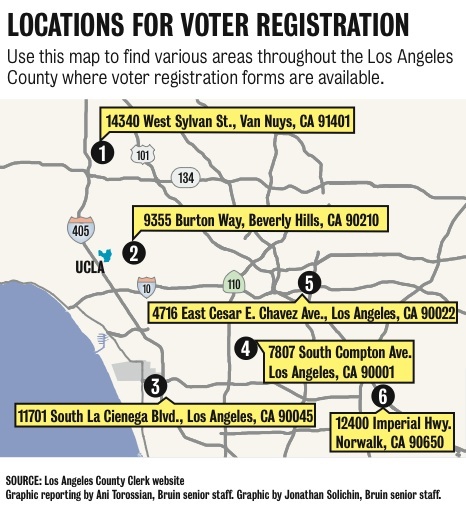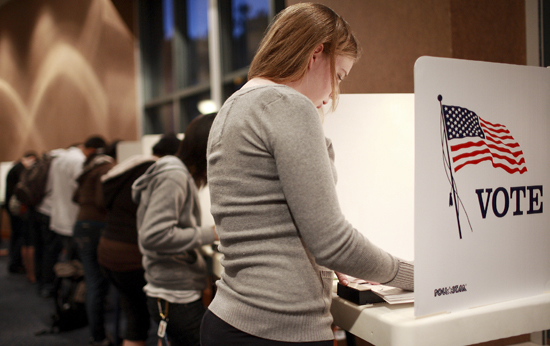
Ryland Lu

As the mid-quarter routine of testing and papers gets underway, many UCLA students may miss out on an equally important deadline: Oct. 22, the last day for citizens of eligible age to register to vote in the upcoming elections.
Fortunately, this hard-and-fast deadline may shift in the next presidential election cycle. Last week, Gov. Jerry Brown signed into law Assembly Bill 1436, legislation that will extend the period for voter registration through Election Day.
The bill, scheduled to take effect as early as 2014, may boost turnout among youth voters aged 18 to 25 by as much as 9 percent, according to a study by the New York-based think tank Demos. The new law is also estimated to increase registration by 6.4 percent for voters in the 25- to 36-year-old demographic.
Despite its common-sense aim, AB 1436 has become, as many items in state and national politics, mired in a partisan controversy. The California Legislature, as a body of lawmakers, should act foremost to protect and extend civic participation, regardless of party interests.
Before being signed into law, AB 1436 passed both the California Senate and Assembly on a party-line vote, with all majority Democrats voting in favor of the bill and all minority Republicans opposing it.
“By passing this (assembly bill), (the Democrats have) put our elections at risk of rampant voter fraud and increased the possibility of duplicative voting,” said Assembly Minority Leader Connie Conway (R-Tulare) in a statement.
But such strong words are unsubstantiated given that bill explicitly mandates that officials verify the eligibility of those registering to vote according to current standards.
Conway’s statement echoes a concern that has been used by fellow party members nationwide to justify similar restrictions.
In the past year, Republican-controlled legislatures in more than eight states have passed bills requiring registered voters show photo identification at the polls, while in other states, Republicans have imposed restrictions on early voting on the premise of preventing voter fraud.
“Since Democrats and Republicans both think that the voter at the margin is more likely to vote Democratic, Democrats tend to support loosening restrictions on voting whereas Republicans favor strengthening them,” said Jeffrey Lewis, a UCLA political science professor.
Polls show that the younger-than-30 block ““ who supported President Barack Obama in 2008 by a huge margin ““ will see the most substantial rise in turnout by way of AB 1436.
But even if this demographic leans to the left, Republicans have no justifiable reason to oppose efforts to ease youth participation in the franchise.
Through a series of amendments, the very constitution to which the Grand Old Party commits itself, guarantees all native-born Americans over the age of 18, irrespective of gender or race, a right to vote.
Though it leaves specific legislation up to individual states, the U.S. Constitution outlines a system in which laws should serve to facilitate the function of democracy rather than hinder it.
On the other hand, proponents of stricter voting laws might point to California Democrats’ use of the legislation as a tool with which to serve their own partisan interest and fill their voter rolls.
Regardless of one’s party banner, altering the franchise for favorable winds in the upcoming election runs counter to the principle and intent of the nation’s founders: that laws and lawmakers must work to encourage an active electorate.
Email Lu at rlu@media.ucla.edu. Send general comments to opinion@media.ucla.edu or tweet us @DBOpinion.”“:https://twitter.com/DBOpinion
